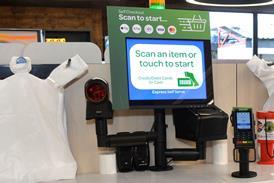There’s a sense of panic on many forecourts these days with customers fuming at prices, blaming the retailer, but then queuing up if your prices stay a penny or two cheaper than the ones down the road for a few hours. Then there are tanker drivers threatening to cut off supplies and pumps covered as sites run out of fuel. There are epidemic quantities of drive-offs. A fortune in cash to count and bank every day. It’s no surprise then that many operators say they feel totally stressed out trying to run their businesses ’as normal’ in times that feel very far from ’normal’. The worst part of it is that there’s no end in sight - welcome to the new reality of petroleum retailing.
Unfortunately at times like this many people become completely overwhelmed by external events and they forget the fundamental routines of running a business. And it is exactly at times like this that the basic stuff is absolutely critical.
Take cash control. A busy forecourt and shop can now be handling close to £1m-worth of retail sales each month - or around £33,000 a day. However it isn’t uncommon for retailers who used to spend hours looking for that £50 ’short’ at the end of a day to now accept a shortage of hundreds of pounds when they close a shift, on the basis that "It’ll probably come back tomorrow".
Then we have the bank account. Tanker deliveries easily now exceed £40,000 each in value, and many sites have been ordering lots of extra tankers - either to avoid running out when panic buying sets in, or else simply to try and make a few hundred pounds windfall profit when the next pump price rise happens. But then they forget that those deliveries will be direct-debited out of their bank account a few days later. It isn’t unknown for either banks or oil companies to make a mistake and for a tanker to be debited twice . But since some retailers are too busy to bother looking at their bank accounts, the first that they’ll know about it is when the bank calls them to advise that they’ve gone over their overdraft limit, and then it’s a frantic search through weeks of bank statements and delivery invoices to try and match up one with the other.
And while on the subject of wet stock, each litre of fuel underground now costs somewhere between 98p and 111p - let’s just say ’105p’ for the sake of argument. A year ago that cost would have been around 80ppl. If our typical 4.5 million litre site had an overall fuel stock shortage of (0.30%) last year, the total cost of ’lost stock’ was some £10,800 over the year - around £900 a month. At today’s prices that same rate of loss will cost some £14,175 - or around £1,181 a month. You can bet that the margin hasn’t gone up by that amount. Many sites have difficulty keeping tank levels constant in the face of wildly unpredictable customer demand and the added fact of supply difficulties. This means we see tanks going from almost full to almost dry and back again over a very short period.
In turn those volume swings play havoc with dip readings which leads some operators to completely ignore the wetstock reconciliation - funnily enough some have the same justification as they do for cash - "It’ll probably come back tomorrow". And just as with cash, what if it doesn’t?
Then there are the local account customers. Admittedly these are fewer than they used to be, and most are now found on dealer-owned sites rather than oil company sites. But for many smaller independents they’ve been a way of building some customer loyalty in an age of price promiscuity. For years we’ve advised clients that they can’t afford to fund their customers, let alone cover the cost of bad debts.
Any accounts should be prepaid and stopped as soon as the limit has been reached. A few have done that in the past. But even some of those have forgotten to ask their customers to increase their ’deposit’ in line with fuel prices.
The point we’re making is that in this harsh ’new reality’ it can be very easy to overlook the basic disciplines of any business - cash control, stock control, debtor control - yet it is precisely these basics that every business needs even in ’good’ times, let alone in these hard times.
So go on, practise a bit of control. It’ll help you survive - and you might even enjoy it.























No comments yet